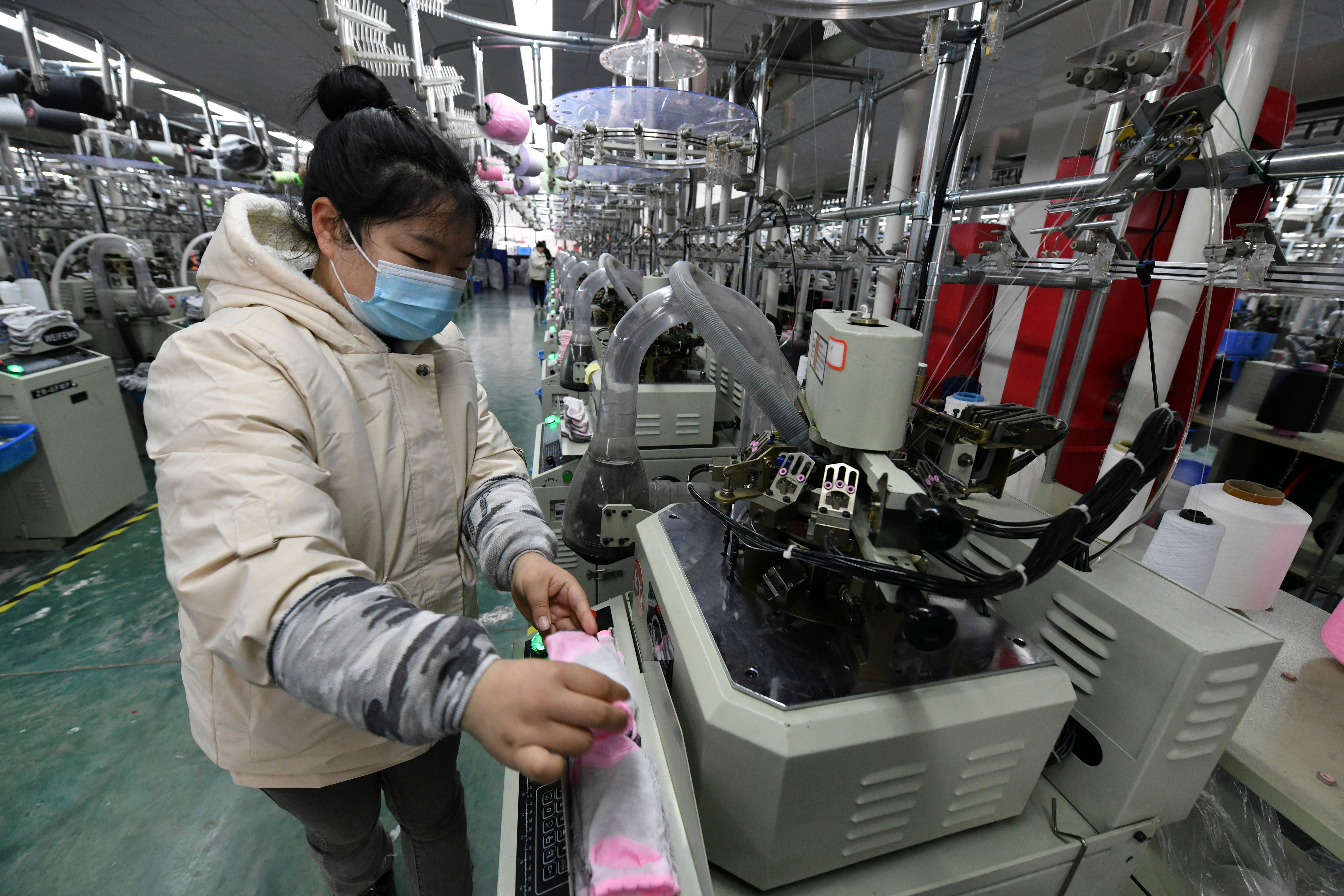China's slowing economy in spotlight as legislature meets
The annual meeting of China's mostly ceremonial legislature usually showcases grand, long-term plans

Your support helps us to tell the story
From reproductive rights to climate change to Big Tech, The Independent is on the ground when the story is developing. Whether it's investigating the financials of Elon Musk's pro-Trump PAC or producing our latest documentary, 'The A Word', which shines a light on the American women fighting for reproductive rights, we know how important it is to parse out the facts from the messaging.
At such a critical moment in US history, we need reporters on the ground. Your donation allows us to keep sending journalists to speak to both sides of the story.
The Independent is trusted by Americans across the entire political spectrum. And unlike many other quality news outlets, we choose not to lock Americans out of our reporting and analysis with paywalls. We believe quality journalism should be available to everyone, paid for by those who can afford it.
Your support makes all the difference.China's ruling Communist Party is temporarily turning away from its longer-term ambitions to focus on pulling the economy out of a slump as the country heads into the annual meeting of its ceremonial legislature.
The National People's Congress, usually used to showcase big initiatives, is overshadowed this year by a “policy pivot” begun in December by President Xi Jinping's government to revive anemic consumer spending and housing sales.
Beijing is easing off multi-year campaigns to cut surging debt that Chinese leaders worry is dangerously high, rein in carbon emissions and narrow the gap between a wealthy elite and China’s poor majority.
“They probably need to be put on the back burner for this year, while actively prioritizing stabilization goals,” said Helen Qiao, the chief China economist for Bank of America.
The NPC session, which opens Saturday, takes place against a backdrop of Russia’s attack on Ukraine, which has pushed up oil prices and added to uncertainty over a global recovery from the coronavirus pandemic.
China's economic growth slid to 4% over a year earlier in the final three months of 2021, down from 18.3% in the first quarter, after a crackdown on borrowing in the real estate industry set off a plunge in construction, a major employer.
Manufacturing was hurt by power shortages, weak export demand and anti-disease controls that cut off access to major cities. Share prices of e-commerce and other internet companies plunged after Beijing tightened control over the industry.
In response, ruling party leaders in December promised tax cuts for entrepreneurs who generate jobs and wealth. Banks were ordered to lend more.
“The defining theme for 2022 could be a race between slowdown and stimulus,” Larry Hu and Xinyu Ji of Macquarie Group said in a report. However, they said, “stimulus is so costly that they don’t want to overdo it.”
Forecasters expect Premier Li Keqiang, the No. 2 leader and top economic official, to announce an annual growth target as low as 5%. It would be the lowest in decades but better than last year′s anemic 2.3% growth.
Companies and investors will watch how large a budget deficit the ruling party will allow.
“A lot of people were asking me recently if we can see a significant step up in the pace and intensity of policy easing during or after the NPC,” Qiao said.
However, it might be too early to expect more changes while Chinese leaders are waiting to see how the economy performed in January and February. Qiao said they want to avoid resorting to their traditional tool of encouraging spending on real estate, which might push up politically sensitive housing costs and debt.
“While many people are saying, maybe there is something big coming out, I am a nonbeliever," she said.
The meeting of the NPC's 3,000-plus delegates does little lawmaking. The high-profile event is used to announce broad goals for the economy, social welfare and other issues. Companies and the public wait months to learn details of policy changes.
Over the past two years, however, Li has tried to reassure the public by using the NPC to announce measures that put more money in consumers’ pockets.
This year’s NPC was cut to one week from the traditional two and takes place under strict anti-disease controls. News conferences will be held by video link. Few big gatherings are scheduled.
China was the first major economy to rebound from the pandemic in 2019, allowing Xi's government to shift its focus back to structural changes aimed at nurturing self-sustaining growth based on consumer spending instead of trade and investment.
Meanwhile, Beijing launched anti-monopoly and information security crackdowns on e-commerce and other internet companies. It pushed them to divert money from their core businesses into initiatives like rural job creation and developing processor chips and other technology to reduce reliance on U.S. and other foreign suppliers.
The crackdown on debt that Chinese leaders worry is dangerously high has pushed some smaller real estate developers into bankruptcy. One of the biggest, Evergrande Group, is struggling to avoid defaulting on 2 trillion yuan ($310 billion) owed to banks and bondholders. Uneasy apartment buyers have put off purchases, fueling a downward industry spiral.
After the growth slump, “the basic policy tone this year has turned to stability,” said He Fan, a professor at Shanghai Jiaotong University’s Antai College of Economics and Management.
The “policy pivot” suggests the peak of efforts to control internet companies and real estate debt “are behind us,” Hu and Ji said in a report.
Forecasters expect debt to creep back up as banks lend more and Beijing pumps money into the economy through higher spending on public works.
“Without infrastructure investment, it is difficult to stabilize the economy,” said He.
___
AP researcher Yu Bing contributed.